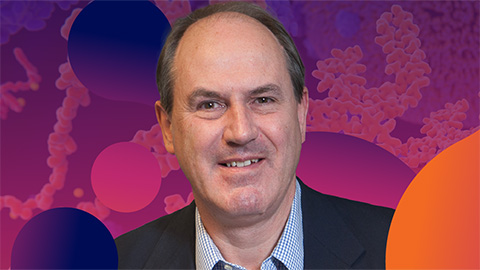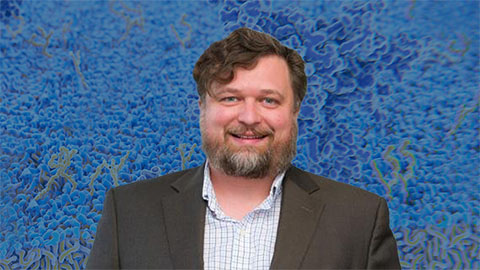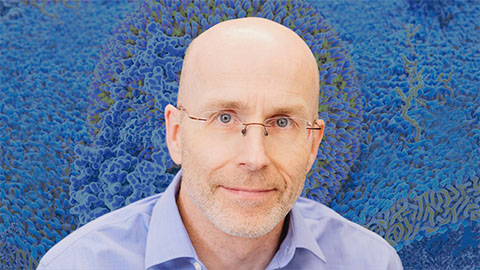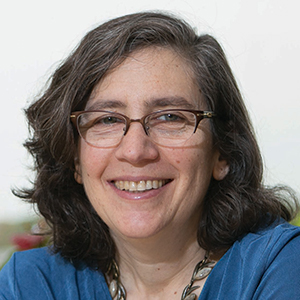
Computation is the new experiment
After decades of playing second fiddle, computation is now taking center stage — achieving critical insights that experimentation alone cannot provide. We are witnessing a dramatic rise in artificial intelligence–based methods coupled with year-on-year improvements of physics-based approaches. We now can fold a protein accurately from sequence alone!
Game-changing methods in protein and enzyme design are hurtling toward us. Scientists now can integrate numerous experimental data sets into computational models to explore previously unseen elements at (and across) scales never before achieved. Computational simulations are rewriting textbooks — from molecules to system dynamics and function. Machine learning is transforming drug design and development.
All in all, you will not find a symposium at Discover BMB, the annual meeting of the American Society for Biochemistry and Molecular Biology, filled with more excitement and possibility than ours. Buckle up for a thrilling ride in March in Seattle!
Keywords: Artificial intelligence, structural biology, simulation, drug discovery, bioinformatics, systems biology, machine learning.
Who should attend: All who want to find out how computation is transforming biological problem-solving.
Theme song: “Respect” by Aretha Franklin, because computation deserves it.
This session is powered by a powerful flux capacitor.
Speakers
Structure determination
Debora Marks, Harvard Medical School
Rommie E. Amaro (chair), University of California, San Diego
Ramanathan Arvind, Argonne National Laboratory; University of Chicago
Jason Perry, Gilead Sciences Inc.
Drug design
John Chodera, Sloan Kettering Institute
David Baker, University of Washington
Steve Capuzzi, Vertex Pharmaceuticals
Celia Schiffer (chair), University of Massachusetts Chan Medical School
Bioinformatics / Systems biology
Marian Walhout, University of Massachusetts Chan Medical School
Janet George, Intel Corporation
Ivet Bahar (chair), University of Pittsburgh School of Medicine
Henry van dem Bedam, AtomWise Inc.
The complete list
Learn about all 11 symposia planned for Discover BMB 2023:- Protein Machines and Disorder
- Regulation of RNA
- Organelles, Mechanisms and Phase Properties of Cellular Quality Control
- Lipid Dynamics and Signals in Membrane and Protein Structure
- Frontiers in Carbohydrate Synthesis and Recognition
- Bias In, Bias Out in Data Science
- Cell Signaling — New Tools and Emerging Concepts
- Education and Professional Development
- Biochemistry of Elemental Cycling
- Advances in Organismal and Cellular Metabolism
- Artificial Intelligence and Machine Learning in Structural Biology, Drug Design and Systems Biology
Enjoy reading ASBMB Today?
Become a member to receive the print edition four times a year and the digital edition monthly.
Learn moreGet the latest from ASBMB Today
Enter your email address, and we’ll send you a weekly email with recent articles, interviews and more.
Latest in Science
Science highlights or most popular articles

Defining JNKs: Targets for drug discovery
Roger Davis will receive the Bert and Natalie Vallee Award in Biomedical Science at the ASBMB Annual Meeting, March 7–10, just outside of Washington, D.C.

Building better tools to decipher the lipidome
Chemical engineer–turned–biophysicist Matthew Mitsche uses curiosity, coding and creativity to tackle lipid biology, uncovering PNPLA3’s role in fatty liver disease and advancing mass spectrometry tools for studying complex lipid systems.

Redefining lipid biology from droplets to ferroptosis
James Olzmann will receive the ASBMB Avanti Award in Lipids at the ASBMB Annual Meeting, March 7–10, just outside of Washington, D.C.

Women’s health cannot leave rare diseases behind
A physician living with lymphangioleiomyomatosis and a basic scientist explain why patient-driven, trial-ready research is essential to turning momentum into meaningful progress.

Life in four dimensions: When biology outpaces the brain
Nobel laureate Eric Betzig will discuss his research on information transfer in biology from proteins to organisms at the 2026 ASBMB Annual Meeting.

Fasting, fat and the molecular switches that keep us alive
Nutritional biochemist and JLR AE Sander Kersten has spent decades uncovering how the body adapts to fasting. His discoveries on lipid metabolism and gene regulation reveal how our ancient survival mechanisms may hold keys to modern metabolic health.


